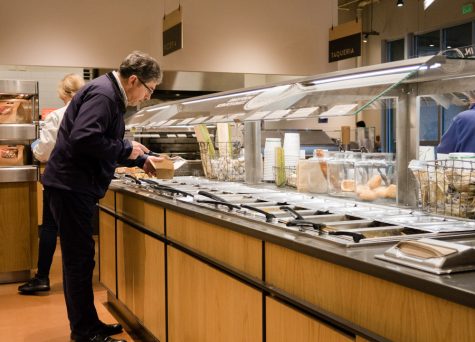Not everyone can afford to be environmentally conscious
Many low-income Americans cannot financially contribute to fight against climate change
March 4, 2020

Many people feel passionate about the environment but may hit financial barriers in the journey to become more environmentally conscious. PCC has a wide offering of natural and cleanly produced items but they often come at a high price.
As the effects of climate change become more and more apparent, millions of consumers are beginning to shift their perspectives on the types of products they purchase. Today, there are a variety of “eco-friendly” alternatives to products the public has become accustomed to using every day — from compostable straws and cups, to clothing made from recyclable materials.
On top of the products used everyday, even widely eaten food has seen dramatic changes in how it is perceived, with more companies advertising organic, pesticide-free groceries. While many consumers express the desire to be more eco-friendly with what they purchase, the financial challenge of buying those high-cost items seems to prevent most people from participating.
In 2018, Seattle made headlines when it became the first United States city to ban plastic straws and utensils, prompting companies to quickly shift toward eco-friendly compostable items.
While companies like Starbucks, Seattle Coffee Company, McDonald’s and others were able to quickly ship out new compostable versions, smaller local companies were forced to either ignore the ban and continue using what stock they had, or stop offering straws and disposable utensils altogether.
Research done by University of Washington students for Seattle Public Utilities shows that 22% of all businesses tested had not changed their products and continued to use single-use plastic straws, while 26% continued to use single-use utensils.
The same study seems to suggest that compliance to this new law may be more grounded on the wealth of the business rather than the owner’s stance on climate control. For example, in District 1, compliance was a mere 60% while for Districts 2 and 3 only 40% of the businesses tested were compliant to the new law. Districts 1-3 have some of Seattle’s least wealthy neighborhoods, such as South Park, the International District and Pike/Pine.
On the other hand, District 7, which boasts a 90% compliance rate to the new law, contains more wealthy areas such as Queen Anne, South Lake Union and Magnolia.This not only shows that wealthy businesses can afford mandatory products, but also shows that the cost of operating in other Districts is likely too high to have the ability to afford switching to the new mandatory products.
While many Seattleites have noticed the shift to compostable straws and utensils at their favorite businesses, few are able to replicate the same eco-friendly changes in their personal lives. Eco-friendly products from soap to food have become a status symbol, showing one’s devotion to the health of the planet. It is clear these products are in high demand, but the lack of widespread use shows that there is a major financial roadblock keeping working class consumers from buying them.
From one test, Seatstainable found that non-organic dish soap was priced at $5 while a similar organic version doubled in cost. The same gap is seen in the price of groceries, where organic fruits are often double or triple the cost of their non-organic counterparts. This can present a major challenge for financially struggling consumers who want to be environmentally friendly.
To them, it would seem that they are being punished for the damage large corporations have done to the planet.
Large corporations may cause new laws to be passed in response to their actions, forcing them to change their business practices, but the environmental impact they create affects those living in poverty far worse. For those living in poverty, climate change can present grave consequences in their ability to survive.
As our planet deteriorates, soil and water are lost, the air becomes polluted and stark changes in temperatures cause plant species to become endangered or die out entirely. In many countries, development and infrastructure always wins over climate regulation, especially as the amount of natural disasters continues to rise.
When given the option between shelter and protection versus climate change regulations, which may not show a significant effect in that area, ordinary citizens will always choose what is the most pressing need — the shelter and protection. It is not their job to tackle the problems arising with climate change, as this responsibility lies with the large corporations who are the majority contributors to this crisis.
Despite the impact corporations have had on the environment, it seems that those ordinary people are the ones who suffer the most.
While everyone contributes in small ways to our changing climate, it can be said with total certainty that the impact made by everyday people pales in comparison to the damage by corporations, damage that cannot be fixed by simply purchasing eco-friendly cleaners and non-plastic disposables. Low income Americans may not have the means to be actively fighting climate change through the products they buy, but everyone can play a part in energy conservation.
The declining climate is in large part a result of corporate greed, so purchasing high-cost, eco-friendly products will not stop the effects on the environment large corporations create everyday.

























































































